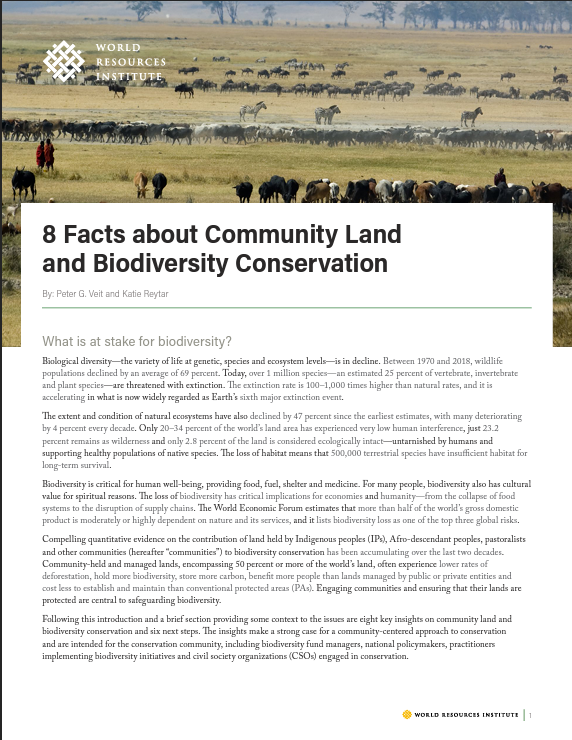8 Facts about Community Land and Biodiversity Conservation
Eight facts about community land and biodiversity conservation. This short report synthesizes the scientific evidence affirming the importance of Indigenous Peoples and local communities - and the security of their rights and tenure - in protecting ecosystems and biodiversity.












